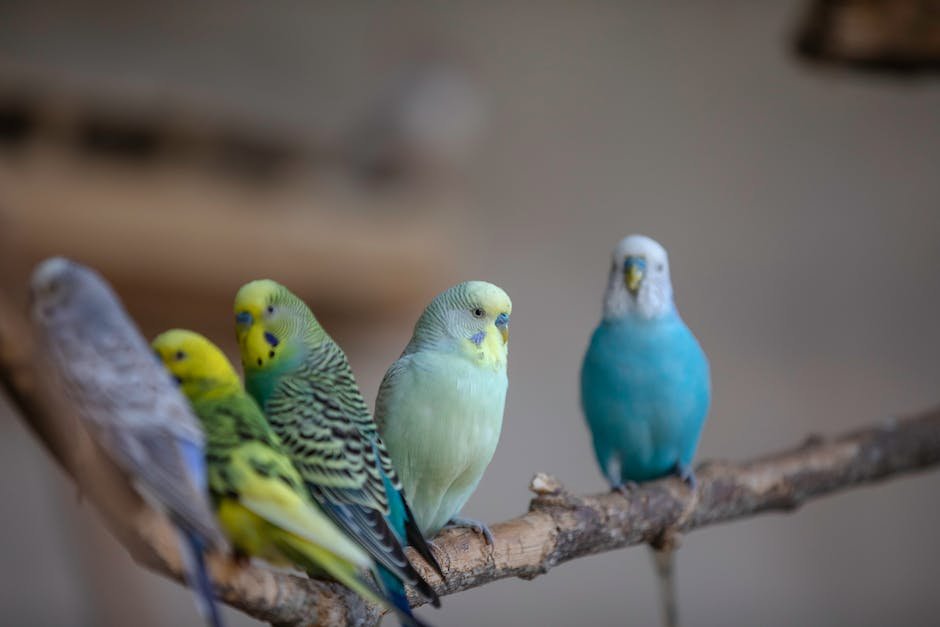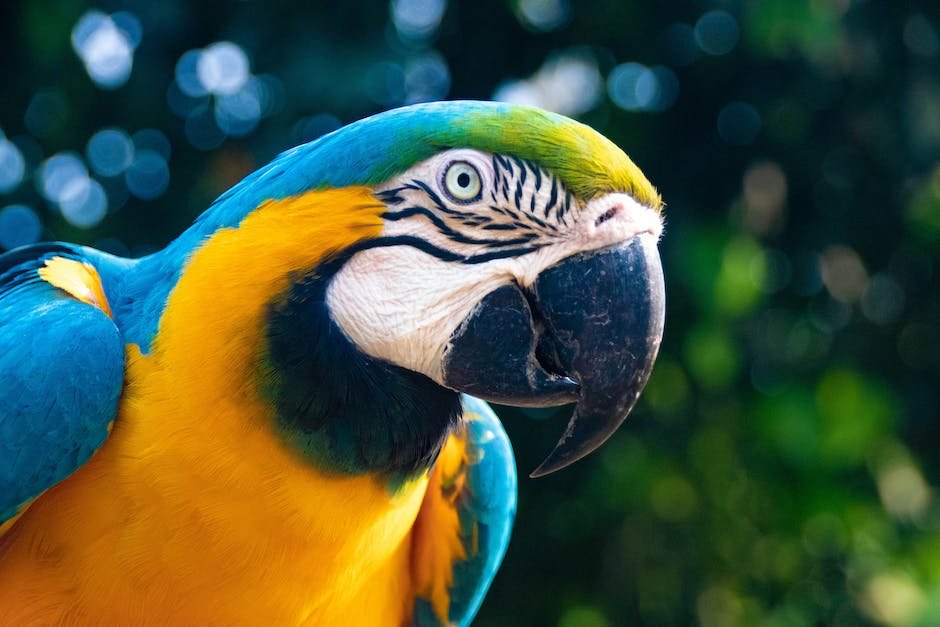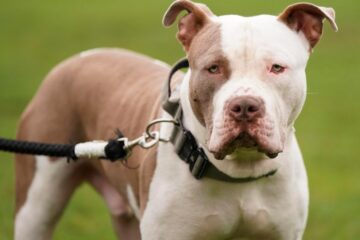A parakeet that is shaking its tail, wings up, or flapping its wings rapidly is usually signaling distress or fear.
This can be due to something it has seen or heard, like a sound, another bird, human interaction, etc. It could also be because it does not feel well physically, such as when an animal gets sick.
When birds are stressed they may become more active, talkative, and vocal. They may try to hide in places so other animals cannot detect them. Sometimes birds will drop their normal level of activity and spend less time exploring and interacting with surroundings.
There are several reasons why your parakeet might be acting nervous, which should allay any worries. Unfortunately, some stressors are beyond our control, but you can still help reduce any negative effects this bird may be experiencing.
This article will discuss possible causes for your parakeet’s behavior and what you can do to address each one. For more information about how to care for your pet, see our article: How To Take Care Of Your Pet.
They are infected with a virus

A very common culprit for this is psittacosis, which is often referred to as “chicken flu” due to its similarity in symptom appearance to infectious chicken disease called chicken pox (shingles).
This can be avoided by ensuring that your birds are exposed to only healthy bacteria and germs through frequent bathing, use of appropriate supplements, and limiting external exposure via diet and environment.
However, there are ways to treat psittacosis! Certain antiviral medications can help reduce the severity of the illness and even cure it completely if given early enough. Because each individual pet’s body reacts differently to drugs, finding the right medication for your bird takes experimenting with one out of many different brands.
Unfortunately, most veterinary clinics do not test for psittacosis unless your animal shows signs of the disorder, so making an appointment ahead of time will increase your chance of getting the needed care.
They have a brain tumor
A parakeet that is shaking, acting nervous or erratic is probably suffering from a brain tumor. This is very serious as it can be fatal for the bird!
A benign (non-cancerous) intracranial mass such as a glioma, meningeal sarcoma, or capillary hemangioma may cause the parrot to develop symptoms.
If your pet is exhibiting these signs of distress, take them immediately to the veterinarian so they can perform tests to determine if this is the case.
It is important to note that even though most birds do not survive surgery for brain tumors, there are treatments available that can increase their chance of survival.
Tumors in the head usually begin with an abnormality in cell growth which causes the tissue around it to become swollen and/or inflamed. In some cases, bacteria or viruses can infect and grow within the cells as well.
This article will discuss what you should look out for when observing your bird during these episodes, and tips for helping your bird feel better.
They need to be put down
Unfortunately, most parrot owners find that their birds are not happy for very long before they have to say goodbye. This can be due to many things- health issues or conflicts with other pets in the home being some of the main causes.
When your bird is behaving badly, it may seem impossible to keep them calm. For example, if your pet is trying to get away from you then staying close to them may make them more agitated. On the contrary, when they want attention they may become noisy or annoying by talking too much.
Whatever behavior your bird exhibits, none of it helps at a time like this. It only makes matters worse!
If you’re thinking about putting your pet down, here are some helpful tips. First, try giving them space so that they can decompress. You could do this by moving into another room, taking them outside or covering up any furniture that was used earlier.
Second, help them feel comfortable by using a quiet voice and clothing that your dog does not mind chewing on. If possible, use a familiar bed or place to relax as there may be questions running through their minds.
Third, give them food and water to drink. Make sure these are appropriate amounts for their size. Birds require less food than dogs or cats but they should never be hungry.
Fourth, try distracting them if possible. Play music or talk to them.
They are biting someone
 If you look closely, your parrot may be trying to bite something or someone! This is very common when birds get hungry or angry.
If you look closely, your parrot may be trying to bite something or someone! This is very common when birds get hungry or angry.
Birds must eat every few hours, just like us humans do! When this isn’t done properly, it can cause health problems for your bird.
Verify that your bird is healthy by looking at their paws and undercoat. If they seem dry and flaky, check if they have any cuts or wounds that could affect their skin. Also make sure there aren’t any rotten smells coming from them. If so, put some apple cider vinegar in a bowl of water and see if the smell goes away.
If you notice your bird acting sick or showing symptoms such as vomiting, drooling, lethargy, weight loss, and/or diarrhea, take them to the vet right away!
Your doctor will likely want to know what kind of food your bird was eating, whether or not they were exposed to anything outside of the house, and if anyone touched the body parts affected by the bites.
It’s important to remember that even though most birds don’t contain poisons, some bichloral meat products (such as chicken feed) can carry trichinosis parasites which can become ingested accidentally.
They are eating too much
Sometimes, your parrot will get hungry or thirsty and need to eat more food or drink more water. This can sometimes cause your bird to become playful, agitated, or even aggressive towards other birds or humans.
If this happens, try to distract them by offering them toys or games that they enjoy. You could also offer them some of their favorite foods so that they feel relaxed and content with themselves.
Once they have calmed down, you can then let them relax in their cage where they can calm their nerves. It may take hours for them to settle down, but give them time to recover and they should be fine.
Some things make curious creatures wonder if something is wrong, so it’s best to address such behaviors when they are less severe.
They are not eating enough
It is very important for parrots to eat a variety of foods to survive. As humans, we depend on food to thrive so it makes sense that birds do too!
Most parrot diets are made up mostly of fruits and vegetables with some meat or other animal products in there as well.
However, what kind of vegetable matter your bird is eating depends on which stage they are at when they start feeding them.
Younger parrots need more calcium content greens like spinach or broccoli to grow strong bones.
Older parrots may be able to enjoy leafy greens but make sure their diet also contains adequate vitamins B12 and A as these are used in feather growth.
Some parrots can develop kidney disease if they lack essential minerals in their diet, so ensuring their nutritional needs are being met is an important part of keeping them healthy.
They are aggressive
When your parrot is acting aggressively, it’s important to determine what context they were in and whether or not you provoked an argument. Was this situation repeated consistently? If so, it may be due to stressors such as changes at the nest or other birds around them.
It could also be because of nutritional deficiencies. Make sure their diet contains enough vitamins and minerals such as iron, vitamin A, zinc, and copper. These can all contribute to healthy feathers and fur, which may make them feel stressed and need to shake off excess energy.
If possible, try to identify what was upsetting to your bird before the aggression and see if there any specific behaviors that made you add up. For example, did someone put down the food dish too quickly after feeding time? Were they hit by another animal or human? All of these things could be sources of conflict.
Once you have identified the problem, you will know how to handle it! Avoid provoking arguments with appropriate timing of meals and changes, keep the noise level low, and avoid touching them when they are behaving badly.
They are not social
Social birds such as canaries, parrots, or cockatoos will often shake their beak, head, or feet when another bird of its species is present. This is how they greet each other!
This is very interesting to watch because it is so themey! Most people assume that if your parrot is shaking then something must be wrong with it but this behavior is actually quite normal for most parrots.
It’s kind of like why dogs growl, some animals just use sound to communicate.
If you were ever in a car with a dog and he was growling, it could mean one of several things — maybe there’s someone else in the vehicle he got into an argument with, his owners left him alone for too long, or he sensed something scary approaching.
But for many dogs, it’s just their way of being funny or playful.
Some dogs develop behaviors as puppies which shift as they get older, like the playful “I am the king of the universe” type of barking or the frequent barks accompanied by ear fluttering (called trickery) that we call salutation calls.
For example, although budgies don’t speak any language we know of, they do have a distinctive whistle called a trill that they use to identify each other.


















